This article was supposed to be written last year.
In May 2023, hot off the heels of my last article, I was impatient to begin another article about another subject that appealed to me: the psychology of burnout. But after starting a Note for the drafting process, I stared at the blank space below “Burnout,” willing words to begin flowing out of my hands to fill the vacuum and eventually create another article, as it had with my two prior articles. But the flow did not start. I stared for a minute or two before powering off my phone and moving on with my lunch. The next day, I reopened the note, only to stare at the blank space for another minute before closing Notes, again failing to make a single mark. A few days later, the same disappointing phenomenon occurred, and then again a week later, and then again a month later, as I strained and struggled for something, anything to get the ball rolling and fell short time after time after time.
As much as I wanted to keep writing, I simply couldn’t muster the drive to write more than a few words or formulate anything but clunky and dull sentences before deleting my unsatisfactory work, closing Notes, and spending my time in other ways, ways that perhaps yielded less reward but at the cost of much less mental exertion. From the beginning, though, I didn’t need a professional psychologist to know that I had fallen victim to the very condition I was researching. Between AP exams, finals, and more social pressure than ever before, I was in no position to create anything I could be proud of, and to be transparent, I remain unsure of my ability as I write this. I know, however, that this experience, this defeat, this doubt, is not exclusive to me, and thus I believe it important to research the inner workings of burnout: what is it? How does it happen? Why is it so common to burn ourselves out in the pursuit of happiness and fulfillment? What exactly causes our spark to fade, and what can we do to rekindle it?
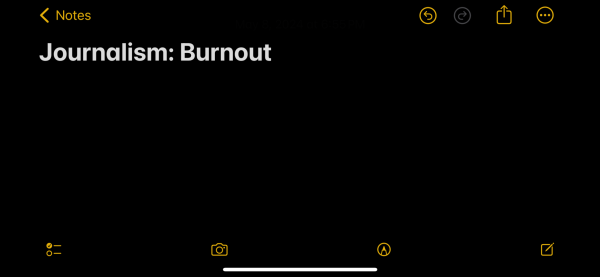
I chose to begin this article with my experience as a writer, but my relationship with burnout is a singular case among countless others experiencing a similar sense of defeat in their respective niches of life; burnout thrives in nearly every environment tainted by stress and affects millions of people in an endless number of ways. I could have opened with the plight of the artist, for whom creation is their lifeblood as well as their eternal ordeal; I could have detailed the life of the star student, who refuses to give anything less than their best until they have nothing left to give; I could have shed light upon the millions every day who struggle to keep up in a landscape of harsh working conditions and even harsher deadlines. Burnout is a disease that thrives in every profession, passion, and pursuit of today; at its core, however, it is a psychological condition thoroughly scrutinized by researchers throughout the years.
The American Psychological Association defines burnout as “physical, emotional, or mental exhaustion accompanied by decreased motivation, lowered performance, and negative attitudes toward oneself and others. It results from performing at a high level until stress and tension, especially from extreme and prolonged physical or mental exertion or an overburdening workload, take their toll.” Yale clinical assistant professor of psychiatry Mark Rego corroborates this definition in Kayla Yup’s article “How People Fall Apart,” claiming that burnout becomes most evident as “we begin to lose our ability to concentrate… We have the tip of the tongue phenomenon, we lose things easily — these are both from working memory breaking down — and our emotions escape their confines into harsh speech. Eventually the system will break down and we will need to rest to focus at all.”
In simpler terms, overexerting yourself in any aspect of your life will completely siphon your energy in every aspect; things that once brought joy now bring nothing, maintaining concentration becomes a Herculean task, and simply leaving your room is a challenge in and of itself. It is difficult, however, to avoid overexertion when nearly everything in today’s world is designed specifically to be competitive and overstimulating; with the sheer amount of financial, social, and psychological transactions surrounding us at any given time in addition to the world being compressed into a device that fits in the palm of our hand, feeling overwhelmed, helpless, and defeated is practically a certainty.
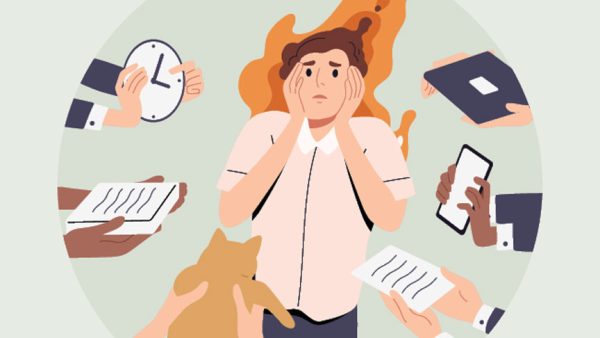
To reiterate, burnout is a perennially festering epidemic only exacerbated by a society in a constant state of hyper-stimulation. Everything we see, hear, smell, touch, and taste is expressly designed to grab our attention, which in effect forces us into a permanent state of high alert, exerting mental willpower every second of every day. The overwhelming amount of feedback we receive at any given moment becomes extremely exhausting with remarkable ease; the efficiency with which the modern world snags our attention is a prime reason burnout is now a worldwide plague upon education, within the workplace, and in passion-filled endeavors. Our society serves as an echo chamber of constant and overwhelming information, something the COVID-19 pandemic only inflamed; although the last vestiges of the quarantine lifestyle are now fading into the past, the unhealthy habits and detrimental rumination perpetrated by isolation from the outside world left the motivation of millions decayed, damaged, and scarred to an extent that was unprecedented and, frankly, still largely unknown.
While there are plenty of external factors to burnout, it is also possible (and, I regret to say, common) for overachievers to burn themselves out as a direct result of their ambition. Be it through striving for academic perfection or struggling to keep pace with your workload, trying to maintain a frankly impossible level of proficiency in any profession or passion may very well strip you of your capacity to strive for mere competence, much less excellence. At the same time, however, setting healthy boundaries for yourself is difficult when you feel as if you could be doing more; walking the wire between too much work and not enough is extraordinarily difficult in a world where prosperity and happiness are often contingent upon success.
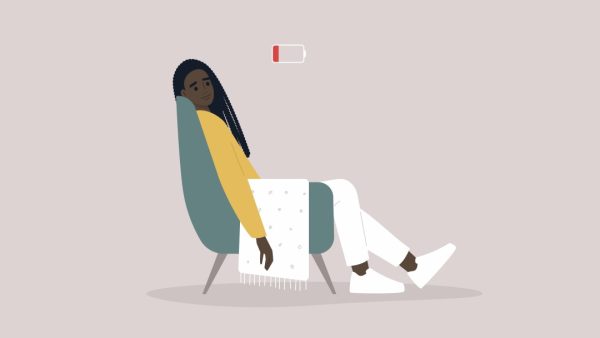
Our culture idolizes the people who run themselves into the ground; tech moguls such as Elon Musk and Bill Gates often decimate their health at the apex of their fame, and their stories of achievement necessitating a physical and mental toll are mirrored in nearly every profession. It is no surprise, then, that many burnout symptoms correlate with other maladaptive emotions and conditions such as stress, anxiety, and depression. This relationship, however, is particularly malevolent because the correlation works both ways; burnout can inspire maladaptive emotions, and inversely, maladaptive emotions can inspire burnout. Thus, burning out perpetuates a vicious cycle of self-loathing and emptiness that its victims cannot escape for quite some time.
This cycle becomes even more of a threat in the context of the modern world; it would not be an overstatement to say that today’s high school students, for instance, are among the most overstimulated humans of all time. Between harrowing classes, omnipresent social pressure, and looming premonitions about the future near and far, teenagers in 2023 never get a moment’s rest, let alone adequate time and space to properly care for themselves and satisfy the needs they may not even know they have. Many chase academic greatness, many strive to secure their future, and many pursue their greatest passion; no matter the specifics of their strife, though, they all find themselves faltering in a society that waits for no one.
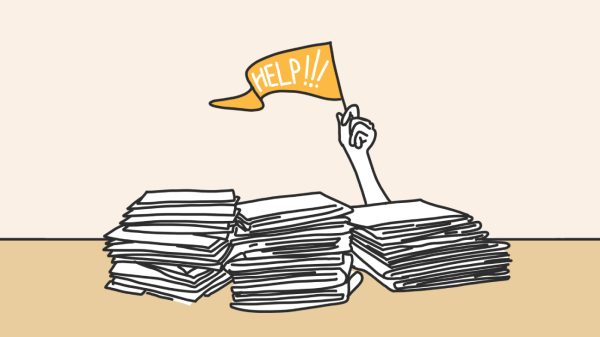
The detrimental effects of burnout become much clearer (and much scarier) when observed from a neurobiological perspective, as documented in Alexandra Michel’s Association for Psychological Science article “Burnout and the Brain.” In Michel’s article, Sweden psychologist Armita Golkar and her team from the Karolinska Institutet researched 40 victims of burnout and a control group of 70 volunteers, intending to measure their ability to regulate negative emotions and impulses and monitor their brains for abnormal growth or decay. Golkar asked the volunteers (all of whom were students at the Institutet) to fixate on a picture before playing a loud and startling sound without warning; she then asked the students to self-assess their regulation of the sudden anxiety and utilized an fMRI scan to monitor what exactly transpired within the brain, particularly in the amygdala, the brain’s center for impulse and fear. Her team found that “participants in the burnout group had relatively enlarged amygdalae, and also appeared to have significantly weaker connections between the amygdala and brain areas linked to emotional distress… The more stressed an individual reported feeling, the weaker the connectivity between these brain regions appeared on the R-fMRI.”
In another study from Karolinska Institutet, this time an MRI scan conducted by neurologist Ivanka Savic, another diminished association was recorded between the amygdala and the anterior cingulate cortex (ACC), which regulates empathy, impulse, and emotion, as well as the medial prefrontal cortex (mPFC), which, as the name may suggest, is the niche of our brain responsible for mediating impulsive behavior, a feasible explanation for why it is so difficult for victims of burnout to control their emotions. In the context of our neuroscience, this correlation implies a biological difference between victims of burnout and neurotypical individuals; there are tangible repercussions to overworking yourself, starting with an impaired ability to recognize and regulate emotion. In some cases, the anatomy of burnout patients’ brains mirrored that of trauma victims, implying that stress, if left unchecked, may be as damaging as extremely scarring events.
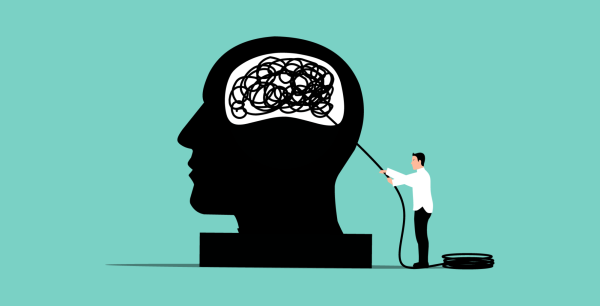
The neuroscience of burnout may sound scary; a physical transformation in response to overworking and stress is difficult to overlook. The brain is not irreparable, however; quite on the contrary, one of the most extraordinary aspects of our minds is its plasticity, or its ability to change and adapt over time. A 2009 Cornell study concluded that, given one month of reduced stress, prior victims of burnout showed no neurobiological differences from the brains of people who were not struggling with chronic stress. There are precious few opportunities in modern life for such a lengthy break, however, and many victims of burnout find themselves unable to escape their chronic stress; the lofty ambitions and high expectations that drive us to work until we cannot all but ensure we fall back into our slumps over and over again in a perpetual loop of anxiety, depression, and pain.
It would be unfair of me to claim that there is a concrete way to prevent burnout from ever occurring; at some point in your life, you will overwork yourself, be it through ignorance or force, and you will falter, likely multiple times. That said, you are not out of options; research has backed several methods that aid in decompressing and restoring your brain to what it once was. So, the question becomes: how can we heal ourselves from burnout?

Because burnout symptoms share so many similarities with symptoms of depression and anxiety, the treatments and coping methods used to treat the latter two can also be used to treat the former. Various studies show that toxic changes in the brain can be prevented by a sense of agency and influence over oneself and one’s circumstances; this is called an internal locus of control, the belief that your actions define your life, as opposed to external factors that are often apathetic toward your worth as an individual. Maintaining an internal locus of control is essential in maintaining motivation and overcoming exhaustion, and is remarkably easy; the sense that your actions are of genuine merit can be augmented by any amount of force exerted over your environment, even if that expression of individual power seems infinitesimal.
In practice, this means that one of the most effective things you can do to reassert your sense of control and begin the recovery process is as simple as cleaning your room. It sounds ludicrous, but menial tasks such as accomplishing chores or completing small assignments help reorient oneself and establish a sense of consistency in one’s life, stability that is downright essential in rekindling motivation. Similar to how burnout affects niches of your brain beyond its origin, the act of accomplishment, of succeeding in any aspect of your life, no matter how trivial it may seem, creates a snowball effect that then generalizes to a broader sense of control and a renewed drive to fulfill your potential.

Just as the brain can affect the body’s functions, as in instances of depression that introduce physical lethargy as a symptom, so too can the body affect the brain’s performance; while neurotransmitters are produced inside the brain, hormones are produced in glands in the body before entering the brain as a physiological response to stimuli. This is why Yale professor on neuroscience Amy Arnsten emphasizes the importance of living a physiologically healthy life in Sandee LaMotte’s CNN article; adequate sleep, consistent exercise, balanced meals, and allotted time for decompressing are essential in mastering your anatomy and, by proxy, your psychology.
Self-care techniques such as eating healthy and practicing mindfulness decrease your stress levels both physically and mentally; not only do they lower your blood pressure, but they also reduce your cortisol, a hormone produced in the body associated with stress. Your brain responds to cortisol by focusing on essential survival functions such as respiration and diminishing other, nonessential functions like complex thought. In today’s world, however, we often require that complex thought to fulfill and escape the predicaments that bring us the most stress. In this sense, instances of pressure force us to fight both our physiology and neurochemistry; reorienting your body, then, frees your mind from inhibition and revives your capacity to reason abstractly, rationally, and thoughtfully, which is precisely the remedy you require in the face of impending deadlines or looming exams.

Another factor in healing from burnout is one of the most fundamental requirements of the human brain: interpersonal connection. We are inherently social creatures, as we always have been; the streamlined communication of our modern culture and the neurobiological imperative to find strength in numbers work in tandem to nurture a powerful necessity for connection and camaraderie. While this remains true in a superficial sense today, the importance of true connection on a psychological level has been undermined and diminished in recent years; rarely do we attempt to forge vulnerable, authentic connections with our peers, largely because society villainizes the very concept of vulnerability, perceiving it as a sign of weakness and holding in contempt the prospect of revealing one’s truest self to others. In truth, though, establishing a sense of trust with one’s peers is proven to have incredibly beneficial effects on one’s mental health, as seen in our brains during interaction with others.
As previously stated, stress is a survival response above all else, and our brain has adapted to reward behaviors that increase the odds of survival, such as cultivating relationships and working together with others. Psychology Today writer Judith Glaser writes in her article “The Neuroscience of Conversations” that, when we engage with someone we deem trustworthy, our brains release an influx of the neurotransmitter and hormone oxytocin, a chemical associated with feelings of love, connection, and safety, the latter of which is essential in lowering stress levels. Oxytocin serves as the benevolent antithesis of cortisol, counteracting amygdala response and reopening the neural pathways that enable rational thought, in addition to beneficial side effects such as augmenting empathy and even encouraging neurogenesis, the growth of new cells in the brain. Oxytocin is a highly potent chemical that thrives in our blood and our minds, and as such is crucial in reasserting our sense of motivation and safety when we feel overwhelmed and drained by the apathetic standards surrounding us. Asking for help, comfort, or simply an ear does wonders for your mentality on an emotional and biological level; never hesitate to reach out to those around you when you feel alone or defeated.
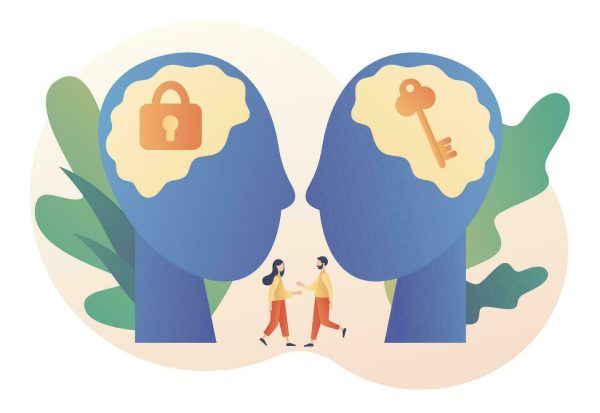
Burnout is inevitable in every meaningful pursuit; whether you seek to hone your academic mind, enter into a social contract, or fulfill your dream to its fullest, the shadow of self-doubt and exhaustion will invariably loom over your progress as a direct result of society’s machinations and the oscillating nature of motivation. It is important to recognize, then, that burnout is implicit in the cycle of productivity; despite its detrimental effects, it is simply another step in the process of growth and achievement. While there is no consistently effective method to avoid a motivation dip, a comprehension of the psychology behind the slump and an understanding of possible countermeasures will ensure a timely recovery for you, your work, and your dream.
We weather many challenges, but our greatest hardships originate within our own brains; the neurochemical systems that once served as a survival safeguard are now well past outdated in our continually adapting and constantly shifting society. While we are our own worst enemy, though, we are also our own most powerful master, and thus we possess the capacity to govern ourselves, alter our neurochemistry, and push forward in this life on our own merits. So, I encourage you: do not let burnout control you. Take these strategies, these lessons, and master yourself and your mind. Push forward.











